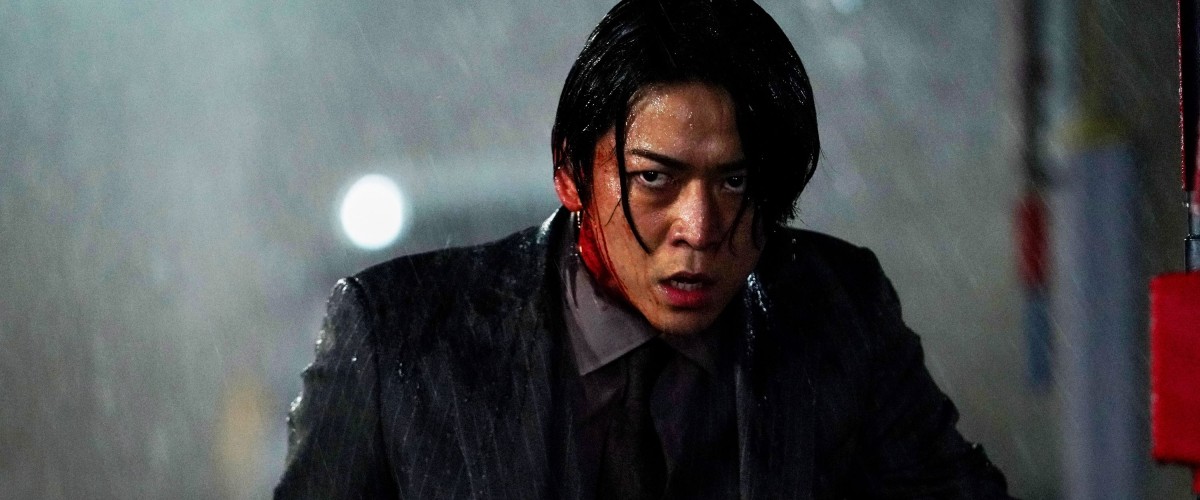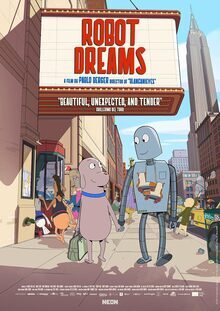
Lumberjack the Monster
Lumberjack the Monster

Now streaming on:
JustWatch
It’s incredible that a filmmaker as renowned as Takashi Miike can have a film stealth drop on Netflix. But that’s what happens when you make as many flicks as the director of “Audition,” “13 Assassins,” and “Ichi the Killer” has helmed over his illustrious career. Seriously, there’s a very strong chance he’s on a set right now, having accumulated over 100 directorial credits as of this writing. However, Miike is more than a “stat compiler”; he’s an ace craftsman who rarely phones it in, elevating a truly clunky project like “Lumberjack the Monster” into something better than it has any right to be. The script by Hiroyoshi Koiwai doesn’t exactly hold together narratively or thematically. Still, there are Miike touches throughout “Lumberjack” that keep it entertaining, even if he’s probably made a better movie while you’re reading this.
“Lumberjack” opens with a horrifying scene involving a deranged woman, multiple dead bodies of children, and a blood spray that can only be described as a geyser. When people die in a Miike movie like this, there’s almost a cartoonish theatricality to it that’s truly effective, an exaggerated quality that gives a genre pic like this a more operatic register – honestly, the movie could have used more of it. Right from this opening scene, there’s a sense that Miike is having the kind of twisted fun he used to do more often when he broke through internationally. However, one of the issues with “Lumberjack” is that it constantly feels like the script is holding Miike back from his more intense tendencies. He finds a way around some of that, but there’s a better version of this film that goes for broke. The less conservative – and that’s putting it lightly – Miike of the late ‘90s and early ‘00s would have whipped this movie into a frenzy.
And that’s because the narrative potential is there. “Lumberjack” is about a serial killer named Akira Ninomiya (an effectively chilly Kazuya Kamenashi) who is attacked by a figure dressed like a character from a children’s book named Lumberjack. When he’s being treated after the assault, the doctor discovers a neurochip in Akira’s brain and discovers that all of Lumberjack’s victims have a similar chip, one that can be traced back to an orphanage and the aforementioned deranged woman. It turns out that the chip has something to do with Akira’s murderous behavior, and figuring out how his life was shaped by his past is the only way to figure out who’s trying to kill him.
The one-on-one between a serial killer who might be finally feeling a moral pang of guilt for the first time in his life and a nearly supernatural being trying to provide him a sort of karmic justice is the strength of “Lumberjack the Monster.” The rest of the cast is pretty thinly portrayed, although Nanao, Kiyohiko Shibukawa, and especially Shido Nakamura do their best with underwritten roles. When “Lumberjack the Monster” gets bogged down in exposition explaining the motives of the title character and Akira, it gets flattened by an unengaging story. Still, it pops back up like an unkillable monster through Miike’s craft, evident not just in the big sequences but the overall flow of the movie.
“Lumberjack the Monster” isn’t a great film but it’s good enough for Miike fans, and could maybe even be a gateway to his career for those who stumble on it on Netflix. You don’t know what kind of cinematic chaos (and greatness) awaits you.
On Netflix now.

Brian Tallerico
Brian Tallerico is the Managing Editor of RogerEbert.com, and also covers television, film, Blu-ray, and video games. He is also a writer for Vulture, The Playlist, The New York Times, and GQ, and the President of the Chicago Film Critics Association.
Now playing

The Garfield Movie
Nell Minow

Force of Nature: The Dry 2
Sheila O’Malley

Ezra
Sheila O’Malley

IF
Clint Worthington

Robot Dreams
Brian Tallerico

Firebrand
Christy Lemire
Film Credits

Lumberjack the Monster (2024)
119 minutes
Cast
Kazuya Kamenashias Akira Ninomiya
Nanaoas Arashiko Toshiro
Riho Yoshiokaas Emi Kagemi
Kiyohiko Shibukawaas Noboru Inui
Shota Sometanias Kuro Sugitani
Shido Nakamuraas Takeshi Kenmochi
Director
- Takashi Miike
Screenplay
- Hiroyoshi Koiwai
Latest blog posts

The 2024 American Black Film Festival Announces Retrospective: Celebrating The Legacy Of Denzel Washington: Moderated by Chaz Ebert

Tribeca Film Festival 2024: 8 Highlights from This Year’s Event

It’s Too Bad That Audience Pictures Like Ultraman: Rising Will Barely Be Seen in Theaters

Jesse Plemons on Being Funny, Stepping Off the Ledge and Making ‘Kinds of Kindness’
Comments
comments powered by Disqus



